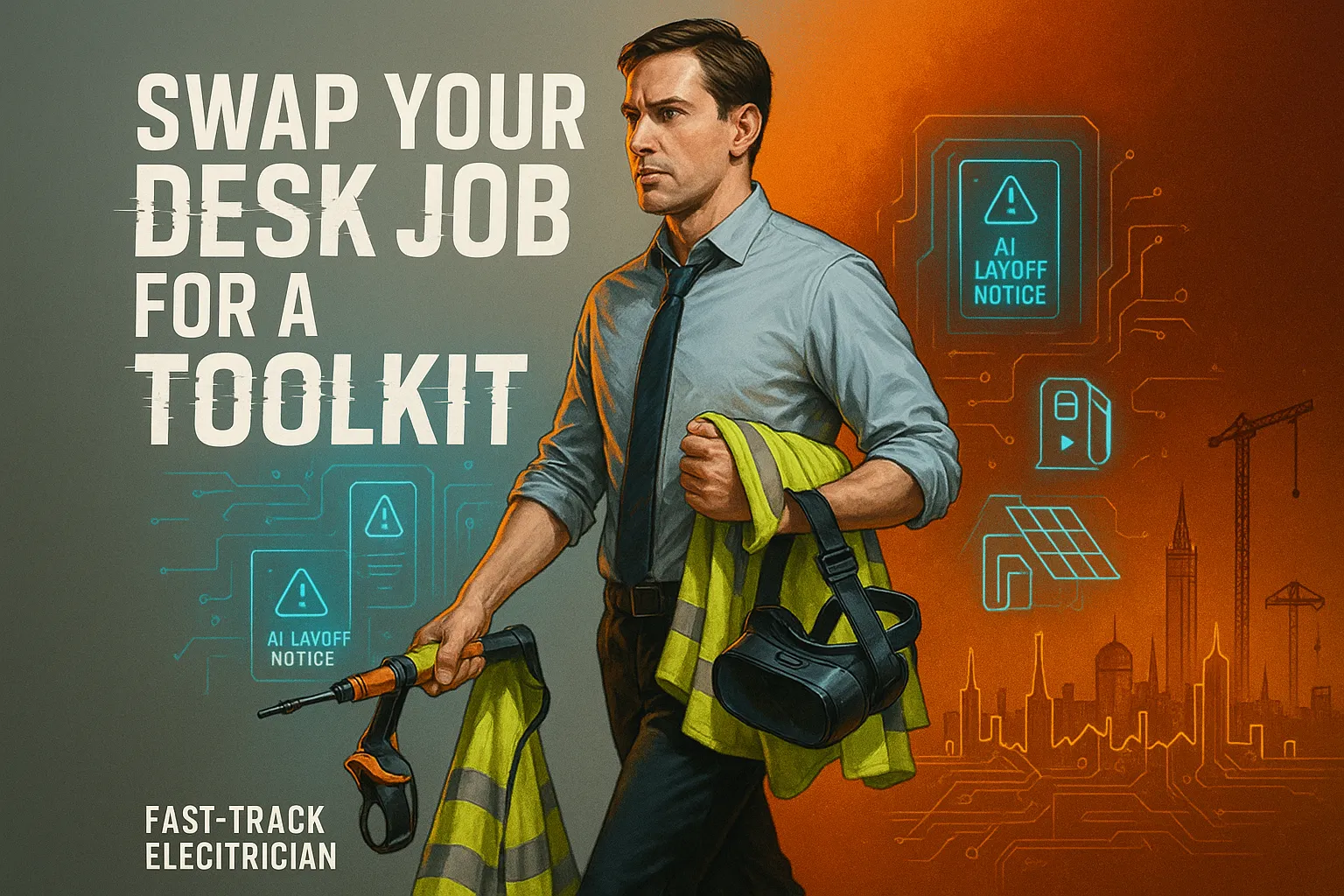Remote work, AI layoffs and a green-tech boom have scrambled the UK job market, but one trade gets hotter by the month: certified electricians. Britain needs roughly 14,500 new sparkies a year through 2028, the Construction Industry Training Board says, mostly to wire heat pumps, solar arrays and EV chargers. If you’re ready for a career that survives recessions and robots, Birmingham-based Elec Training has two high-speed entry routes worth bookmarking—especially its electrician courses Birmingham and the coveted nvq level 3 electrical fast track.
Paychecks That Outrun Inflation
Freshly qualified electricians now average £32–35 k within two years, day rates climb past £45 k once overtime kicks in. By comparison, entry-level data-analysis roles hover near £28 k, and those can evaporate when the next algorithm update rolls out.
Dr Meera Han, University of Leicester: “Physical infrastructure still needs human skill. Robots can draft a circuit diagram; they can’t chase cable through Edwardian brick.”
Route One: Classic but Quick
Elec Training’s ten-week classroom block covers:
- City & Guilds Level 2, 2365-02
- City & Guilds Level 3, 2365-03
- 18th Edition Wiring Regulations exam
After classroom work, trainees jump into paid site placements three days a week while logging evidence for the NVQ 2357 portfolio. Finish it, pass the AM2 practical, and you earn the ECS Gold Card—the trade’s VIP pass.
Route Two: The Fast-Track Power Play
For career-switchers who can’t spend years climbing ladders, the nvq level 3 electrical fast track (links to https://elec.training/nvq-level-3-electrical-installation-maintenance-cg-2357/) trims the entire process to about 18 months. You start the NVQ portfolio on day one and knock out evidence blocks during intensive, tutor-led site weeks. Employers love it because trainees hit site productivity sooner.
Course fee: £8,500 (VAT included). Payment staging is available or firms can sponsor promising recruits using apprenticeship-levy credits.
VR Headsets, Not Boring Slide Decks
Before touching live kit, every trainee uses VR to practise safe isolation on a 3-phase board. Miss a step and the visor flashes red. A tablet-based chatbot answers regs questions in plain English—no frantic page-flipping mid-assessment. Professor Callum Wright, Newcastle University, says blended tech “cuts first-year safety errors by around 40 percent.”
Real-World Wins
- Pop-up retail chain FlashCharge hired two Elec Training grads last year; breaker-trip downtime fell 70 percent, saving £22 k in call-outs.
- Event company StagePulse now sends one sparky with each touring crew, slashing local electrician hire fees by half.
Diversity = Opportunity
Women make up just two percent of UK electricians. Elec Training’s last cohort? Twenty-five percent female, bolstered by WomenOnTheTools bursaries. Trainee Aya Malik says, “Clients assume I’m admin—until I torque a 25 mm gland. Attitudes change fast.”
How to Enrol
- GCSE Maths helps, but practical problem-solving counts more.
- Book a free taster evening (twice monthly) or tour the Birmingham lab in person.
- Upload a 60-second selfie explaining why you want in—authentic beats polished.
- Line up funding: employer-sponsored, personal savings, or staged payments.
- Invest in quality hand tools—cheap cutters slip; your knuckles will remember.
Early-bird applicants for the March 2026 intake snag a Fluke voltage tester worth £160.
Whether you fancy rewiring smart homes in Moseley or running power to film sets at Pinewood, the UK’s electrification push needs skilled hands now. Swap your always-muted headset for an insulated screwdriver, and you could be charging up your pay packet long before another office app re-boots your role. Power, quite literally, remains in human hands—make sure yours are ready.








